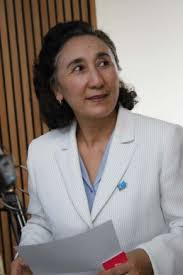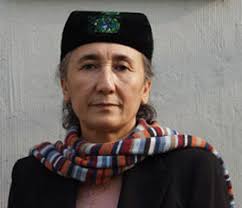India can open consulate in Lhasa: Chinese official
"India can set up a consulate in Lhasa," said Jujian Hua, director at Tibet's Foreign Affairs Office. "That depends on India."
With the 13th round of border talks between India and China resuming in New Delhi earlier this month, Beijing is emphasizing that it wants improved relations with its southern neighbour.
"The (resumption of) cross-border talks between China and India represents a great step in the relationship between the two countries," Jujian told a visiting IANS correspondent.
"The two governments started communication several years ago in terms of trade and culture. The local government (of Tibet) has attached great importance to trade, culture and tradition (exchanges), including tourism."
According to him, tourism has greatly increased with more than 12,000 Indian pilgrims visiting Tibet this year to circumambulate Mt Kailash, the 6,638m Himalayan peak in Tibet's Nari province that is venerated by Hindus, Buddhists and Jains alike.
"Deepening the bilateral relationship really depends on India," the official said.
"Between friends, we should communicate more so that our relationship is strengthened. The central government of China and the Tibet Autonomous Region have a very positive attitude."
However, the official rued that New Delhi has several times refused visa to Chinese delegates.
"Several trade and cultural delegations (headed for India) didn't get visas," he said.
According to him, even a month ago, a trade delegation headed by the vice-governor of Tibet was refused visa by the Indian authorities.
Though officials stop short of spelling it out, the major irritant in India-China ties is the presence of the Dalai Lama and his 'government-in-exile' in India's Dharamsala town.
China officially calls the exiled former ruler of Tibet a separatist and his 'government' illegal and it is clear that exchanges between the two governments could improve remarkably if India closes down the 'government-in-exile', just as Nepal closed the office of the Dalai Lama's envoy in Kathmandu four years ago.
"The 'government-in-exile' is not in line with international laws," says Angpu Gejyuan, vice-director of the Religion and Nationalities Committee.
"No government admits such exiled governments. China and India are two ancient civilisations. We want the Indian government to do that which benefits the relationship and friendship between the two countries."
The Indian consulate in Lhasa was closed following the tumult in Tibet beginning from the 1950s after China annexed the former Buddhist kingdom and the 14th Dalai Lama fled to India following a failed uprising in 1959.
Three years later, China attacked India and the Indian consulate in
| Lhasa was closed. At present, Nepal is the only country to be allowed a consulate in Lhasa, the Forbidden City. Though there have been rapid changes in Nepal's own political scenario, its successive governments, though diverse, have upheld the same foreign policy that considers Tibet, along with Taiwan, to be an integral and inalienable part of China. As memories of the 1962 war faded, India was allowed to open a consulate in Shanghai last year besides the embassy in Beijing, and then Indian External Affairs Minister Pranab Mukherjee inaugurated a second consulate at Guangzhou, a diplomatic concession for which India in turn gave China permission to re-open the Chinese Consulate in Kolkata that had been closed after the 1962 war. Besides India, the US is also seeking to open a consulate in Lhasa. In May, the Foreign Affairs Committee at the US House of Representatives passed a bill authorising the Secretary of State to establish a consulate in Lhasa. US President Barack Obama will visit China in November when he is expected to push for the new consulate.
More Stories from this section
India can reopen consulate in Lhasa:Chinese foreign ministry official Phayul India has not sought to open consulate in LhasaTibetan Review - 23 minutes ago (TibetanReview.net, Aug26, 2009) China is reported to have agreed to allow India to open a Consulate in Tibet's capital Lhasa. "India can set up a consulate ...
| |
__._,_.___













